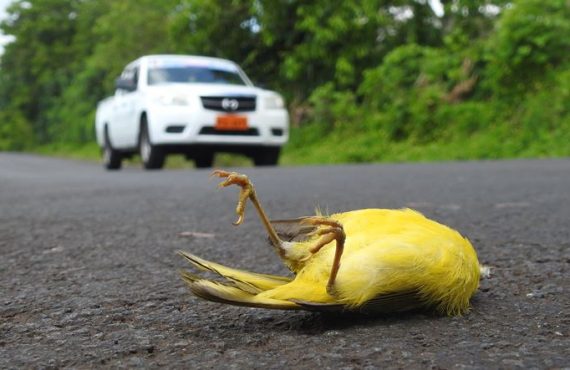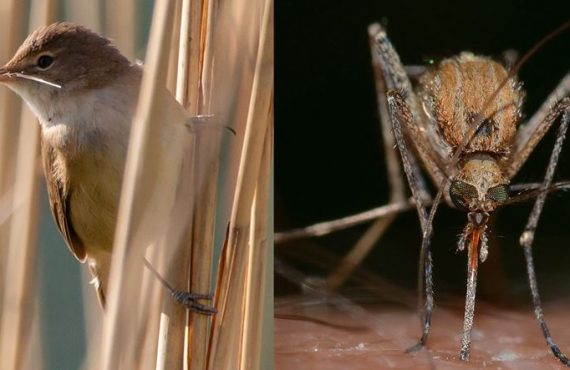Study published in Scientific Reports shows that the rational use of game resources in central Africa is possible, if the objective is restricted to ensuring food safety of people.
The journal “Scientific Reports” has just published a paper about the relationship between human malnutrition and availability of wild meat in the tropical forests of central Africa. This is the last outcome of the collaboration that, for four years, has been kept between the University of Malaga and Professor John Emmanuel Fa, member of the Biology Division of the Imperial College London, Honorary Colaborator of the UMA, and former Director of Science and Conservation at the Durrell Wildlilfe Conservation Trust, in Jersey.
The starting point of this collaboration is rooted in the stay of Professor Juan Mario Vargas Yáñez, from the Animal Biology Department of this University, in the
Durrell Wildlife Conservation Trust (United Kingdom), during the academic course 2010/2011. Nowadays, a series of projects with global relevance are being developed thanks to the scientific contribution of Prof. Fa and of the University of Malaga with the Center for International Forestry Research (CIFOR), through the Director of its Forest and Environment Programme, Dr. Robert Nasi. This stable and productive collaboration involves the whole Biogeography, Diversity and Conservation Group of the University of Malaga, and specifically Professor Raimundo Real Giménez, and the Honorary Collaborators Dr. Jesús Olivero Anarte, Dr. Miguel Ángel Farfán Aguilar and Dr. Ana Luz Márquez Moya, as well as Dr. Jesús Duarte Duarte. The access to competitive funding for highly attractive research projects is facilitated in this context, and a gateway to researchers from Germany, United Kingdom, USA, Indonesia and Cameroon is opened through this way.
The research that has been published in ScientificReports, and its recent precedent in PLOS ONE, are the basis for projects, currently in progress, with high environmental and social relevance. During thousands of years, peoples of the Congo basin have subsisted thanks to hunting. Still now, game constitutes an important source of essential nutrients for rural populations in central Africa. However, animal overexploitation puts at risk, not only the conservation of highly valuable species for their ecosystems, but also the self-sustainability of human populations. The role of animals in the transmission of the Ebola-virus disease to humans adds a more dramatic dimension to the challenge of using bushmeat for food.
The new paper contributes to solve this problem through the analysis of spatial relationships between wild meat availability and child malnutrition. The study covers a large geographic area including all tropical forests in central Africa, and has, as a key reference, the sustainability of hunting.
The analysis shows that child malnutrition is higher on the forest margins than in the deep rainforest block. According to the results, remote forests are able to keep food safety in local peoples at reasonable levels. Remoteness from densely populated areas is significantly related to low malnutrition levels. In these isolated locations, species diversity is high but vulnerable to hunting if exploitation levels increase. The study concludes that protecting remote rainforests in central Africa is a priority, as this will benefit both nature conservation and local people livelihood.
This situation contrasts with that of the forested savannas, located on the margins of the Congolese forests. In these densely populated areas, animal populations are subject to a very high hunting pressure, as a consequence of socio-economic conditions that, in turn, favour malnutrition. Nevertheless, the results of this study demonstrate that the rational use of hunting resources in these areas is also possible if restricted to ensuring human food safety. This is possible thanks to the high productivity, in terms of useful-for-food biomass, of animal populations living in these areas.
The most immediate consequence of the study published in Scientific Reports should encourage regional governments to include bushmeat hunting as a necessary resource, which should be taken into account in environmental conservation policies. Deep forests can keep food safety of hunters-gatherers on condition that human concentration is kept at low levels. Besides, an adequate human nutrition, supported on hunting, is also possible in the rural areas surrounding the forest. However, the sustainability of this resource collapses near urban areas, where child malnutrition shows the highest rates.
Link to this news in the UMA website: https://www.uma.es/sala-de-prensa/noticias/consideran-la-caza-de-subsistencia-compatible-con-la-conservacion-del-medio-ambiente-en-africa/
Link to the whole article in Scientific Reports: https://www.nature.com/articles/srep08168












